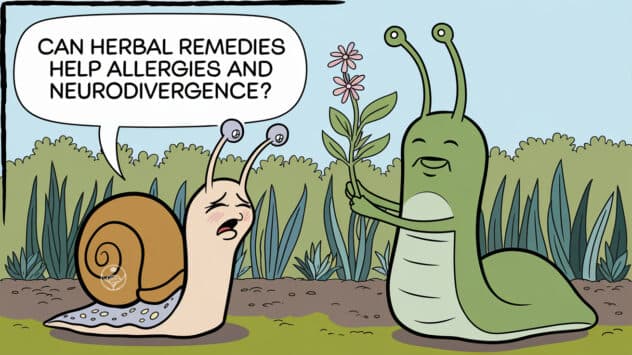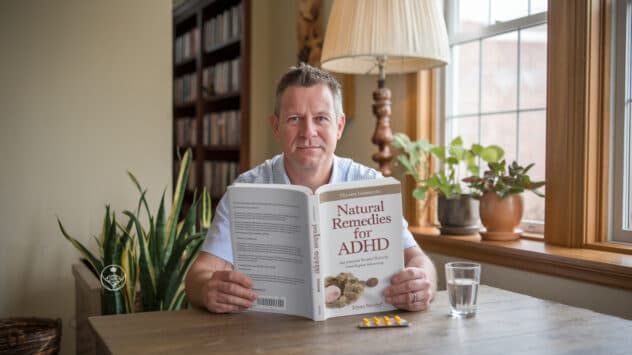The Balance Between Evidence and Empathy: Exploring Alternative Therapies for Neurodivergent Individuals
Let’s be honest: alternative therapies for neurodivergent individuals often spark debates as lively as a family dinner where politics come up. On one side, critics wave them off as pseudoscience or quackery, the kind of thing your sceptical uncle might scoff at during said dinner. On the other, they’re viewed as lifelines for those seeking to complement traditional treatments. But here’s the thing: is it really that black and white, or are we missing the shades of nuance in between? Let’s dig in, clear the air, and talk about how we can approach this sensitive topic with a little bit of nuance and a lot of respect.
Why the Scepticism?
Let’s not beat around the bush, alternative therapies for neurodivergent individuals have faced their fair share of criticism, and not without reason. Some practices lack scientific backing, others exploit desperate individuals, and a few have roots in outdated, even harmful approaches.
Take early versions of Applied Behavioural Analysis (ABA), for example. Once criticised for focusing on “normalising” behaviours, it’s now a therapy that’s evolving to emphasise individuality and ethical practices. The history isn’t spotless, and scepticism is a natural result.
And let’s be real, the word “alternative” sometimes acts like a big flashing neon sign that says, “Warning: dubious claims ahead.” The neurodivergent community, in particular, has every reason to demand ethical, evidence-informed practices. After all, there’s a fine line between offering options and offering snake oil.
Why the Interest?
So, why do so many turn to alternative therapies? It’s simple.
Gaps.
For many neurodivergent individuals and families, traditional treatments often feel like trying to fit a square peg into a round hole. Personalized, holistic approaches, though sometimes still under scientific exploration, can provide a sense of control, hope, or relief where conventional options have felt inadequate for some individuals.
It’s not about rejecting science; it’s about finding what works when the manual doesn’t. For some, that might mean exploring mindfulness, nutritional adjustments, or neurofeedback. For others, it’s a combination of traditional therapies and alternatives that feel right for their unique journey.
Herbal Biohacker’s Approach: Affirming, Not Fixing
Here’s the thing, at Herbal Biohacker, we’re not here to push one solution or another. We’re here to report, explore, and celebrate. Our philosophy is simple:
- Affirming Neurodivergence: We believe in supporting individuals as they are, not fixing or normalising them.
- Promoting Informed Choice: Our goal is to provide balanced, evidence-informed options without endorsing pseudoscience.
- Balancing Evidence and Accessibility: We aim to bridge the gap between scientific research and practical, everyday strategies.
Alternative therapies are part of a bigger picture, and it’s a picture we think should be painted with respect, curiosity, and empathy.
How to Navigate the Landscape of Therapies
If you’re standing at the crossroads, staring down a sea of options (and maybe a few raised eyebrows), here’s how to approach the landscape of therapies with confidence:
- Ask for Evidence: Does the therapy have scientific backing? If not, does it still align with your values and goals? Evidence isn’t always about clinical trials; sometimes it’s about lived experience and personal resonance.
- Prioritise Ethics: Is the approach respectful of your individuality and autonomy? Therapies that feel coercive or dismissive of your identity are red flags. Always trust your gut on this one.
- Consider Complementary Strategies: How does this fit alongside traditional treatments or daily practices? Think of therapies as tools in a toolkit, each one should have its purpose and place.
A Call for Understanding Alternative Therapies for Neurodivergent Individuals
Here’s the truth: there’s no one-size-fits-all approach to neurodivergence. What works wonders for one person might fall flat for another. And that’s okay. By keeping the door open to diverse, respectful options, grounded in evidence and empathy, we create a world where every individual can find their own path to thriving.
It’s not about choosing sides in the great debate over alternative therapies. It’s about making space for discussion, understanding, and most importantly, choice.
Join the Conversation (Or Start Your Own)
At Herbal Biohacker, we’re building a community where discussions like these can flourish. Whether you’re curious about therapies, have your own experiences to share, or just want to connect with others navigating similar journeys, we’d love for you to join us. Let’s learn, share, and grow together.







Thanks for sharing this lovely information.
I love a good debate!
Don’t we all 😜